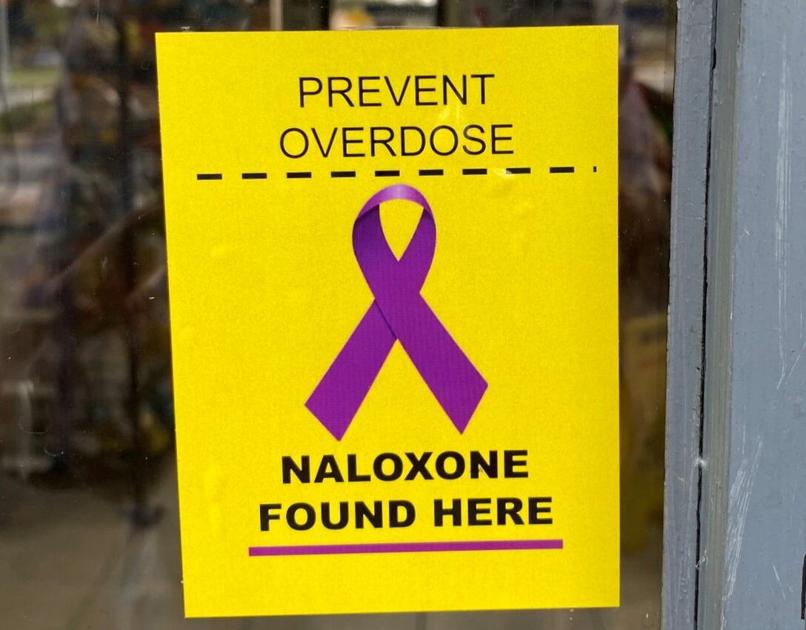
Yogi Patel knew the man was dead as soon as he opened the bathroom door.
The nearby syringe told him why.
Patel had given the man the key to the gas station's outdoor bathroom about 30 minutes before. He didn't notice it had not been returned until another customer asked for it. By then, it was too late.
When first responders arrived they confirmed the man had died of an overdose.
That was in 2003, at the first gas station Patel owned and operated in Rutherford County, N.C. In the following years, he opened another station in Greer where he called 911 multiple times in relation to overdoses at the store, he said.
Advocates say Patel's experiences are part of a larger trend, in which public spaces like gas stations have become hotspots for drug buys, use, and overdoses as the opioid epidemic continues. Now Patel, who is semi-retired, is using his connections to help the Upstate nonprofit Challenges Inc. outfit gas stations and other businesses with naloxone, a life-saving opioid overdose reversal drug.
"When I heard the idea, I jumped on it," Patel said.
It's a program he wishes existed when he was working in stores.
Challenges Inc. founder Marc Burrows said the bathrooms in businesses like gas stations and coffee shops offer seclusion to those struggling with addiction, making them a common location for drug use and, consequently, overdoses. Restrooms, especially those with outdoor entrances, are convenient for users after a parking lot drug deal. For homeless people with substance abuse issues, they offer a private place out of the elements.
Burrows, who used heroin for a decade and has been in recovery for just as long, said he kept a running list of his preferred bathrooms to use in when he was in the throes of addiction.
"Once you've lived that life, you understand how prevalent it is," he said. "You kind of map out in your head where are the good places to go."
That's why Challenges Inc., a harm reduction organization committed to mitigating the risk of drug use, is outfitting businesses that have public bathrooms with naloxone and training their employees. The nonprofit serves as the only clean needle exchange in the state and is South Carolina's largest distributor of naloxone. It recently received a federal grant to purchase about 10,000 doses of the overdose drug which will go, in part, to recovery homes across the state.
Burrows said getting naloxone into the hands of businesses is a vital step in stemming the deadly tide of the opioid epidemic, whether they deal specifically with those suffering with addiction or are simply common sites for drug use.
The drug comes with a sign that reads "Naloxone found here," for business owners to hang in their window. Burrows said the signs not only let people know the naloxone is there should the need arise, but also help to reduce the stigma around addiction.
"If you're willing as a business owner to put this big yellow sticker in your window, I think that says a lot," Burrows said. "It lets the community know that, 'I support drug users, and they're people too and I believe in helping them.'"
Burrows said that for the program to be effective, employees will still have to get to the person in need in time to use the naloxone but having it on site could be the difference between life and death.
"There's still some luck involved for this to work," he said. "But it's just a matter of making it more accessible and shortening that reaction time for EMS."
Patel, a recovering alcoholic who volunteers as a peer counselor at Upstate addiction centers, connected with a friend who helps distribute naloxone to gas stations throughout the state when he learned about the initiative. Between the two of them, Patel said he hopes to reach hundreds of businesses across South Carolina.
They've already equipped a handful of gas stations in the Anderson area. About two dozen others have expressed interest in the program. But the pandemic has slowed progress, while at the same time overdoses across the state have increased. Challenges Inc. has quadrupled its distribution of naloxone in the past several months.
Patel said he is hopeful the initiative will take off when the spread of coronavirus subsides.
"As far as gas stations, it's all about making it accessible and educating them," Patel said. "I haven't heard anything negative about it so far from anybody."
"equip" - Google News
January 03, 2021 at 09:35PM
https://ift.tt/357occh
Gas stations are overdose hot spots. An Upstate nonprofit is equipping some with naloxone. - Charleston Post Courier
"equip" - Google News
https://ift.tt/35zdBFR
https://ift.tt/3fgZnOp

No comments:
Post a Comment